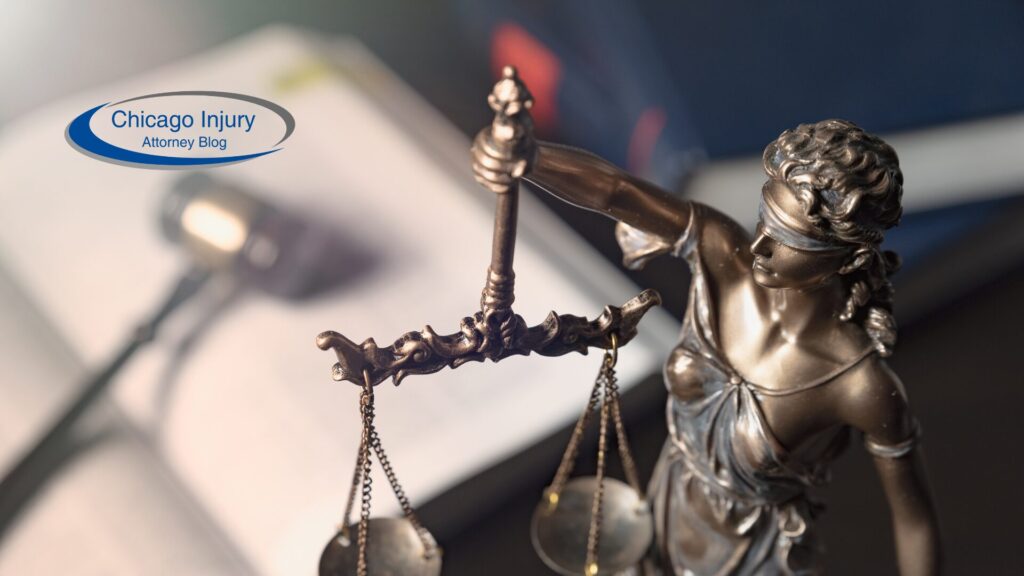In recent years, there has been a growing trend of lawsuits in environmental mass torts that are shaping the legal landscape. These cases, from the impact of greenhouse gas emissions to lawsuits against major polluting companies, have raised important questions about the role of lawyers in society and the legal rights of businesses. Legal practitioners must navigate the complexities of these cases while balancing professional obligations with moral values.
This article explores the emerging trends and issues in mass tort environmental lawsuits and discusses the future of environmental litigation. We delve into specific case studies, global approaches, and strategies for corporations to handle climate change litigation.
The Future of Mass Tort Environmental Lawsuits: Emerging Trends and Issues
The future of mass tort environmental lawsuits is shaped by emerging trends and critical issues that impact legal practitioners, corporations, and society at large. Climate change litigation, along with mass torts, poses significant challenges and opportunities for legal professionals navigating the complex landscape of environmental justice and AI issues.
Climate change litigation has been gaining momentum globally as societies strive to hold accountable those responsible for environmental harm. This has sparked a wave of lawsuits against corporations and governments alleged to have contributed to climate change through their actions or negligence. Legal practitioners specializing in environmental law find themselves at the forefront of these battles, advocating for stricter regulations and seeking justice for affected communities.
The role of AI in mass tort environmental lawsuits is also a burgeoning concern. As artificial intelligence technologies evolve, they present both advantages and hurdles for legal proceedings. AI can aid in sorting through vast amounts of data, identifying patterns, and predicting outcomes, streamlining the litigation process. Ethical and privacy considerations loom large, raising questions about the use of AI in decision-making processes and the potential impact on access to justice.
Key Takeaways
The key takeaways from mass tort environmental lawsuits encompass the concepts of corporate responsibility, legal education reform, societal obligations, business autonomy, and upholding legal rights.
Corporations involved in mass torts face increasing scrutiny for their impact on the environment, leading to heightened expectations of corporate responsibility.
Simultaneously, there is a growing call for legal education reform to equip future lawyers with the skills necessary to handle complex environmental cases.
Society’s societal obligations demand that companies prioritize sustainability and environmental stewardship in their operations.
Despite the need for business autonomy to drive innovation and growth, it is essential to balance this with environmental considerations to mitigate potential harms.
Upholding legal rights becomes crucial in ensuring that affected communities have a voice in seeking justice and holding accountable those responsible for environmental damages.
The Role of Lawyers in Society
Lawyers play a crucial role in society by providing legal representation, navigating complex legal ethics, and interpreting public sentiment in legal cases.
Regarding addressing environmental issues, legal professionals play a vital role in advocating for sustainable practices, ensuring compliance with environmental regulations, and holding corporations and individuals accountable for environmental harm. Their expertise in environmental law is instrumental in shaping policies and regulations that protect our planet and its resources.
Legal professionals have the responsibility to uphold ethical considerations in their practices, ensuring that justice is served while preserving the integrity of the legal system. By adhering to strict ethical standards, they contribute to maintaining trust and confidence in the legal profession.
Understanding the Legal Rights of Businesses
Understanding the legal rights of businesses involves navigating corporate liability within the framework of environmental law, seeking appropriate legal representation to safeguard corporate interests.
Regarding environmental litigation, corporations must adhere to a myriad of regulations to ensure compliance and avoid costly penalties. Corporate liability is a critical aspect, as companies can be held accountable for environmental harm caused by their operations. It is essential for businesses to proactively assess and mitigate environmental risks to minimize legal exposure. Effective legal representation plays a crucial role in guiding corporations through complex environmental laws, providing strategic counsel to navigate disputes, negotiations, and regulatory compliance effectively.
The Impact of Greenhouse Gas Emissions on the Environment
Greenhouse gas emissions have a profound impact on the environment, necessitating effective mitigation strategies and adherence to federal rules of evidence in legal proceedings.
Greenhouse gases, such as carbon dioxide and methane, contribute significantly to global warming and climate change, leading to a range of environmental impacts including sea-level rise, extreme weather events, and habitat destruction. It is crucial for businesses and industries to adopt sustainable practices and technologies to reduce their emissions and minimize their carbon footprint.
Implementing renewable energy sources and improving energy efficiency are key mitigation approaches that can help combat the escalating effects of greenhouse gas emissions. Compliance with regulatory frameworks is essential to ensure that businesses meet emission standards and contribute to a greener future.
Lawsuits Involving Major Polluting Companies
Lawsuits against major polluting companies often revolve around issues such as public nuisance, the right to repair, and PFAS claims, requiring legal professionals to navigate complex legal landscapes and potential involvement of the Department of Justice.
In recent years, there has been an uptick in public nuisance allegations against corporations for their detrimental environmental impact. These lawsuits target companies that contribute to pollution and other harmful activities, holding them accountable for the harm caused to communities and ecosystems.
Disputes around the right to repair have emerged as a key legal battleground between consumers and large corporations. This issue delves into questions of consumer rights, intellectual property, and environmental sustainability, further complicating the legal dynamics in environmental cases.
The Dilemma Faced by Legal Practitioners
Legal practitioners often encounter ethical dilemmas when balancing the pursuit of climate justice, public opinion, and the influence of media in environmental lawsuits.
One of the primary ethical challenges faced by legal professionals in advocating for climate justice is the need to navigate the complex interactions between environmental protection, corporate interests, and governmental regulations. Ensuring fairness and equity in legal proceedings requires lawyers to carefully weigh their responsibilities not only to their clients but also to the broader community and future generations.
Reconciling public opinion on environmental issues can pose challenges as lawyers strive to represent their clients’ interests while also considering the prevailing attitudes and values of society. This delicate balance requires lawyers to communicate effectively, educate the public, and promote transparency in their advocacy efforts.
The Principle of Legal Representation for All
The principle of legal representation for all underscores the importance of ensuring access to justice, particularly in environmental law cases, with entities like Greenberg Traurig LLP hosting legal education events to promote awareness.
Environmental litigation commonly involves complex issues related to land use, pollution, and conservation, necessitating a strong legal framework to protect the environment and communities.
The justice system plays a crucial role in upholding environmental laws, ensuring fairness and accountability in cases involving environmental harm.
Legal education events organized by law firms like Greenberg Traurig LLP serve as valuable platforms for stakeholders to gain insights into the evolving landscape of environmental regulations and enforcement.
The Influence of Public Opinion on Legal Cases
Public opinion and media influence significantly shape legal cases, impacting decisions on legal representation, societal responsibilities, and the interpretation of environmental law.
Regarding legal proceedings, the court of public opinion can sometimes hold as much sway as the court of law itself. Public sentiment can influence which cases receive widespread attention, shaping the narratives that emerge in the media. These narratives, in turn, can affect the strategies employed by legal teams, the way societal obligations are perceived, and even the interpretation of complex environmental laws. It underscores the interconnectedness between the legal system and public discourse, highlighting the need for a nuanced understanding of how external factors can impact judicial outcomes.
Balancing Professional Obligations and Moral Values
Balancing professional obligations with moral values requires legal practitioners to navigate societal responsibilities, uphold legal ethics, and address corporate liability in the pursuit of climate justice.
Environmental litigation presents a unique challenge, as lawyers must not only represent their clients effectively but also consider the broader impacts of their actions on the environment and society.
One of the key dilemmas faced by legal professionals is the clash between the duty to zealously advocate for their clients’ interests and the ethical imperative to uphold environmental protection laws.”
The Future of Environmental Lawsuits
The future of environmental lawsuits hinges on the evolution of environmental law, the protection of legal rights, the implementation of robust mitigation strategies, and the advocacy efforts of organizations like GreenLatinos supporting initiatives such as the Environmental Justice Act.
As society becomes increasingly aware of the interconnectedness between human activities and the natural world, the field of environmental litigation is poised to witness significant shifts. Sustainable development practices are gaining traction, spurring the need for more stringent regulations and enforcement mechanisms. In this landscape, legal frameworks governing environmental protection are under scrutiny, with a push for greater accountability and transparency. Efforts to secure legal rights for marginalized communities and ecosystems are gaining momentum, reflecting a growing trend towards environmental inclusivity and justice.
Building a More Sustainable Legal Practice
Building a more sustainable legal practice involves embracing societal responsibilities, fostering business autonomy, advocating for legal education reform, and implementing effective mitigation strategies, with organizations like Earthworks promoting environmental sustainability.
One crucial aspect of a sustainable legal practice is understanding and addressing societal roles. Lawyers today play a significant role in shaping and upholding societal norms and values through legal advocacy and representation. By aligning legal services with the greater good of society, legal practitioners can contribute positively to social progress and justice. Promoting business autonomy within legal firms encourages innovative practices and ethical decision-making, fostering a culture of responsibility and long-term sustainability.
Frequently Asked Questions
Explore common inquiries regarding climate change litigation, legal representation challenges, implications of AI in legal practices, adherence to federal rules of evidence, and societal responsibilities in environmental lawsuits.
Regarding climate change litigation, many are curious about the specific legal strategies that can be employed to hold parties accountable for environmental harm. Understanding the complexities of environmental law can indeed pose challenges for legal representatives, especially when navigating evolving regulations and precedents. The advent of Artificial Intelligence (AI) has significantly impacted legal practices, offering tools for more efficient research, case analysis, and even predictive outcomes.
In the realm of environmental lawsuits, ensuring compliance with federal rules of evidence is crucial to building a strong case. This includes collecting admissible data, expert testimonies, and scientific reports that align with legal standards. Beyond legal technicalities, there is a growing recognition of societal obligations in environmental litigation, emphasizing the need for accountability, transparency, and sustainable solutions in the pursuit of justice.
Specific Case Studies of Corporations Involved in Climate Change Litigation
Examine specific case studies of corporations entangled in climate change litigation, assessing corporate responsibilities, legal rights, environmental law implications, and potential involvement of regulatory bodies like the Department of Justice.
One such notable example was the lawsuit against an energy company that faced allegations of contributing to climate change through excessive greenhouse gas emissions. This legal battle not only spotlighted the interplay between corporate actions and environmental consequences but also raised questions about accountability in the context of global warming.
In another instance, a multinational corporation had to defend its practices in court regarding deforestation, which had significant impacts on biodiversity and carbon sequestration. This highlighted the increasing focus on corporate sustainability measures and the legal frameworks in place to address environmental harm caused by business activities.
Global Approaches to Lawsuits Related to Climate Change
Explore diverse global approaches to lawsuits concerning climate change, highlighting environmental justice considerations, the role of legal professionals, public sentiment influences, and corporate liability issues on a global scale.
Looking at various regions, European countries like Germany have witnessed landmark cases where citizens have sued their governments for failing to meet emissions targets, setting precedence for government accountability.
In Asia, countries like India are facing legal battles as communities challenge industries over pollution and deforestation, pushing for stricter environmental regulations and enforcement.
In the Americas, particularly in the United States, public awareness through climate change lawsuits has grown, prompting corporations to rethink their carbon footprint and adopt sustainable practices.
Impact of Climate Change Litigation on Corporation’s Financial Performance and Reputation
Assess the impact of climate change litigation on corporations, examining financial performance implications, reputation management strategies, legal representation challenges, and advocacy efforts by organizations like GreenLatinos.
Climate change lawsuits have become a pivotal point of contention within the business world, forcing corporations to overhaul their operational frameworks to align with sustainable practices and regulatory compliance. These lawsuits not only pose financial risks in terms of settlements and regulatory penalties but also have a profound effect on brand reputation that can take years to recover.
Corporations embroiled in climate change litigation often struggle to secure competent legal representation due to the specialized nature of environmental law. Navigating through complex legal proceedings and regulatory frameworks requires a deep understanding of climate science and legal precedents, making it challenging for many companies to defend themselves effectively.
Despite these hurdles, some corporations have proactively embraced sustainability initiatives to mitigate the risk of litigation and improve their public image. By investing in renewable energy projects, carbon offset programs, and environmental conservation efforts, companies can demonstrate a commitment to environmental stewardship and possibly deter future legal challenges.
Advocacy groups like GreenLatinos play a crucial role in shaping public perception and mobilizing support for climate change litigation. By raising awareness about environmental injustices and advocating for stricter regulations, these organizations put pressure on corporations to adopt eco-friendly practices and be accountable for their environmental impact.
Strategies for Corporations to Handle Climate Change Litigation
Explore effective strategies for corporations to manage climate change litigation, including embracing corporate responsibilities, fostering business autonomy, upholding legal ethics, implementing mitigation tactics, and supporting initiatives like those by 350 Colorado.
When facing climate change lawsuits, corporations must prioritize their role in reducing environmental impact and increasing sustainability efforts.
Despite uncertainties in the legal landscape, businesses can take proactive measures to ensure compliance and accountability. Corporate autonomy plays a crucial part in decision-making processes, enabling companies to adopt greener practices and policies. Ethical considerations serve as guiding principles to navigate the complexities of environmental litigation and maintain transparency with stakeholders.
Implementing robust mitigation strategies not only minimizes legal risks but also showcases a commitment to environmental stewardship. Collaborating with organizations such as 350 Colorado can provide valuable insights, resources, and support in aligning corporate goals with sustainability objectives. By fostering partnerships and shared initiatives, corporations can contribute to a collective effort in combating climate change and creating a more environmentally conscious business environment.
Advancements in Environmental Science and Technology Impacting Climate Change Litigation
Examine how advancements in environmental science and technology influence climate change litigation, emphasizing environmental impacts, the role of legal professionals, mitigation strategies, regulatory oversight by entities like the Colorado Air Quality Control Commission, and the protection of legal rights.
The intersection of environmental science progress and the legal landscape in climate change cases highlights a complex web of challenges and opportunities. As scientific research unveils the increasing threats posed by climate change, legal professionals play a crucial role in advocating for environmental protection and sustainable practices. Mitigation approaches, such as carbon offset programs and renewable energy initiatives, are pivotal in addressing the repercussions of climate change.
Regulatory frameworks, including emissions standards set by government bodies like the Colorado Air Quality Control Commission, play a vital role in enforcing environmental laws and ensuring compliance with sustainability measures. Legal rights protection becomes paramount in climate change litigation, where individuals, communities, and organizations seek justice and accountability for environmental harm.
Conclusion
The landscape of climate change litigation underscores the essentiality of upholding legal rights, promoting corporate responsibility, fostering environmental law compliance, and embracing societal obligations within legal frameworks.
One of the crucial aspects of climate change litigation is the recognition of the right to a clean and sustainable environment, which serves as the cornerstone for the legal battles fought in courtrooms worldwide. Corporations are increasingly being held accountable for their carbon footprint and environmental impact, leading to a shift towards more sustainable practices. Adherence to stringent environmental laws ensures that industries operate within the boundaries of sustainability, minimizing adverse effects on the planet.
Societal commitments play a significant role in shaping the trajectory of climate change litigation, with public pressure and activism driving awareness and seeking justice for environmental harm. Collaborative efforts between governments, businesses, and civil society are crucial in navigating the complex legal landscape surrounding climate issues.
Categories
Explore various categories encompassing climate change litigation, legal representation nuances, societal responsibilities, business autonomy considerations, and effective mitigation strategies.
When looking into the realm of climate change lawsuits, the crucial role of legal representation cannot be overlooked. Dedicated lawyers and legal teams interpret complex environmental laws and advocate for affected communities or entities. These legal professionals navigate intricate regulations, statutes, and precedents to build strong cases.
Addressing societal obligations in these litigations is paramount. Communities, governments, and corporations must recognize their roles in contributing to climate change and take proactive steps towards reducing emissions and fostering sustainability.
From a business standpoint, the autonomy of industries might face constraints due to stringent climate-related regulations and legal precedents emerging from court battles.
Related Posts
Delve into related posts discussing the intersection of corporations with climate justice, legal education reform initiatives, the influence of public sentiment, and the evolving landscape of environmental law.
Exploring the dynamic relationship between corporations and climate justice reveals a complex interplay of interests and responsibilities. Corporations increasingly face pressure to align their operations with environmental sustainability goals to meet the demands of stakeholders and international regulations. Within legal education, ongoing reform initiatives aim to equip future legal professionals with the skills and knowledge necessary to address emerging challenges in environmental law.
The influence of public sentiment on these matters cannot be understated. Public awareness and activism play a crucial role in shaping policies and driving corporate accountability in environmental practices. As the global community pushes for more stringent regulations and ethical business conduct, corporations are compelled to navigate a rapidly changing landscape where environmental law takes center stage.
Frequently Asked Questions
What are environmental mass torts?
Environmental mass torts refer to legal disputes or lawsuits arising from environmental issues, usually involving a large number of plaintiffs who have been affected by the same environmental hazard. These cases may involve damage to property, personal injury, or other forms of harm caused by the environmental issue.
Why is there a growing trend of environmental mass torts?
The growing trend of environmental mass torts can be attributed to several factors, including increased awareness and concern for the environment, stricter environmental regulations, and advancements in technology that allow for easier identification and documentation of environmental hazards.
What are some examples of environmental mass torts?
Some examples of environmental mass torts include cases involving exposure to toxic chemicals, air or water pollution, oil spills, and hazardous waste. These cases can have widespread impacts on both individuals and communities, making them a significant environmental and public health concern.
How are victims of environmental mass torts compensated?
Victims of environmental mass torts may seek compensation through a variety of legal avenues, including class action lawsuits, individual lawsuits, and settlements. Compensation may cover medical expenses, property damage, lost wages, and other related damages.
What role do personal injury lawyers play in environmental mass torts?
Personal injury lawyers play a crucial role in environmental mass torts, as they represent the rights and interests of individuals and communities affected by environmental hazards. They help victims navigate the legal process and fight for fair compensation for the harm they have suffered.
How can individuals and communities protect themselves from environmental hazards?
Individuals and communities can protect themselves from environmental hazards by staying informed about potential hazards in their area, following safety protocols, and reporting any concerns to the appropriate authorities. It is also important to consult with a personal injury lawyer if you have been exposed to a potential environmental hazard.





